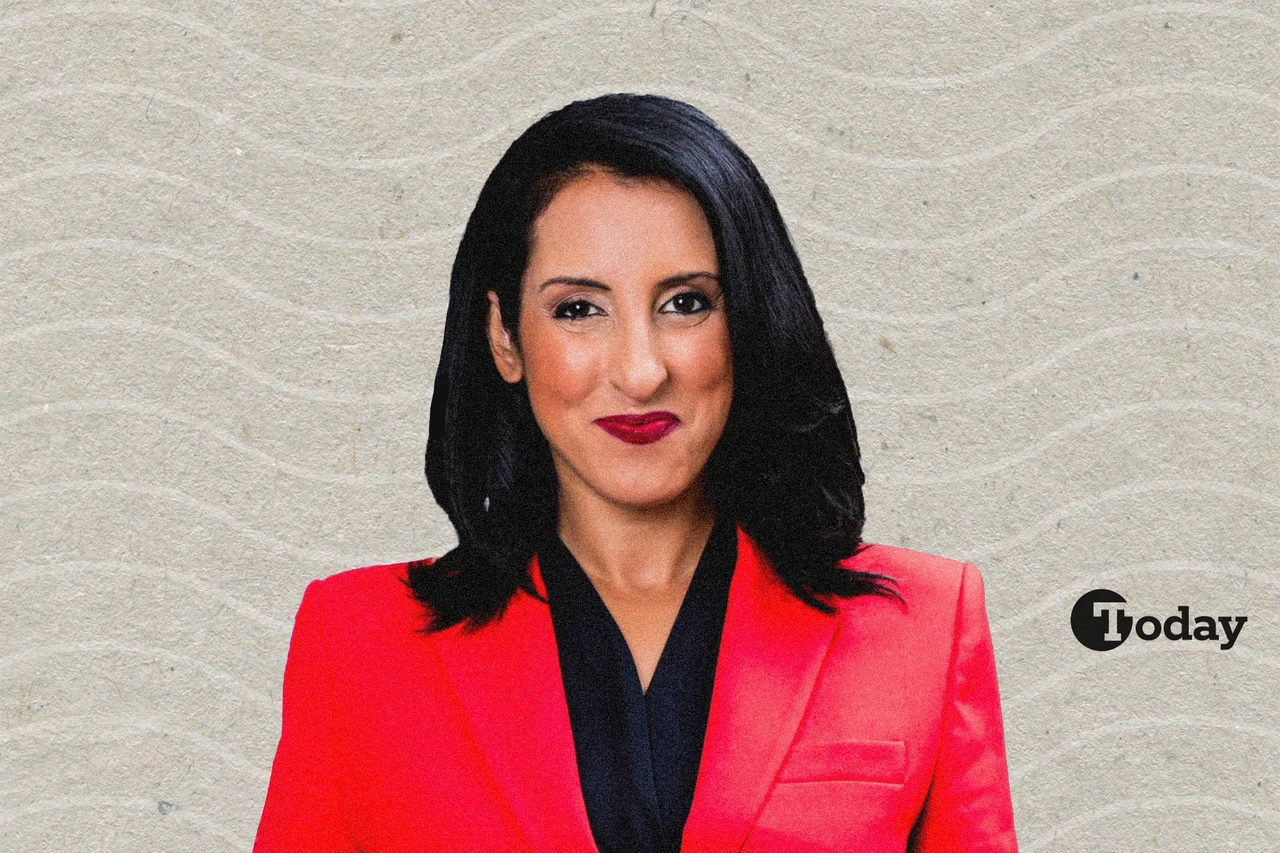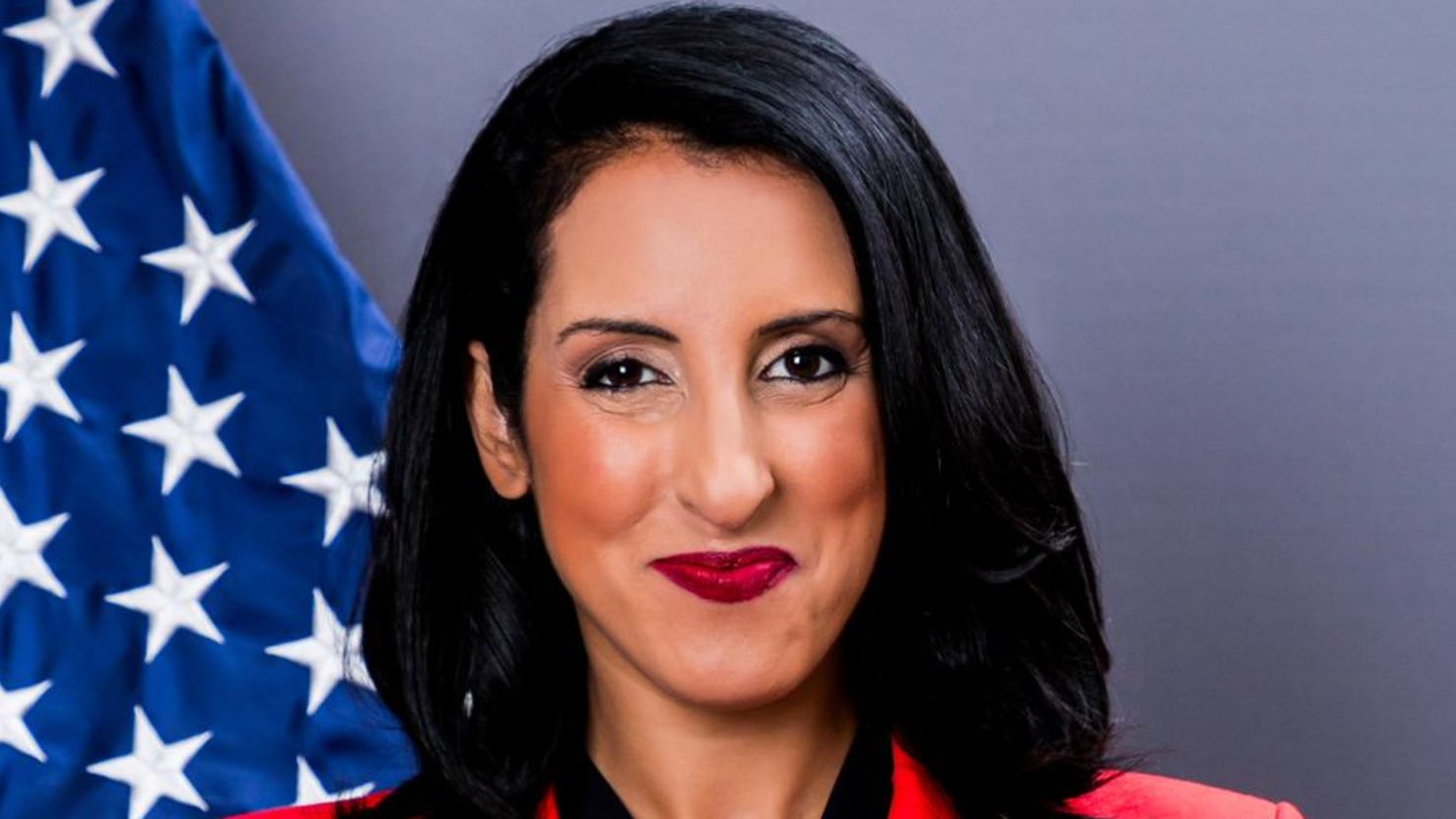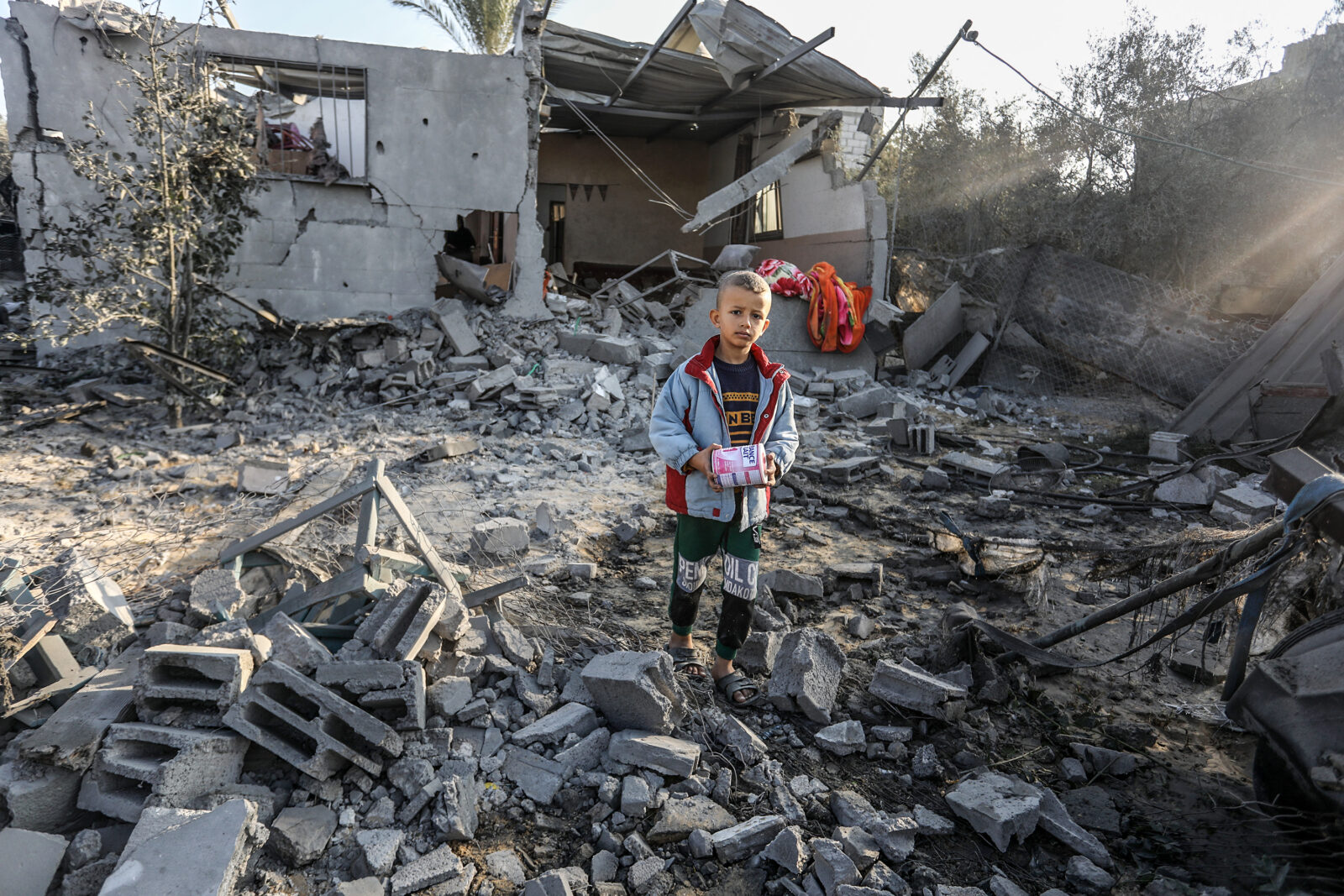Exclusive interview: Former State Dept official Hala Rharrit comments on resignation, Trump presidency
 Former US diplomat Hala Rharrit resigned this year in protest to US support for Israel's atrocities in Gaza.
Former US diplomat Hala Rharrit resigned this year in protest to US support for Israel's atrocities in Gaza.
Hala Rharrit served 18 years in the U.S. State Department, resigning in April 2024, over growing discontent with American foreign policy in the Middle East, especially with the U.S. support for Israel’s massacres in Gaza that amounted to genocide.
She has served in Yemen, Hong Kong, Qatar, South Africa and the UAE with her most recent role as Arabic Language Spokesperson and Deputy Director of the U.S. media hub in Dubai.
Rharrit was one of the first to resign in a wave of resignations that swept through the U.S. government in the last several months.
Hala Rharrit: I did not want to promote war as US diplomat
In her interview with Türkiye Today, she commented on what led to her resignation and her thoughts concerning the return of a Trump administration for the region.
“I eventually decided to quit the State Department; there was no way that I could maintain my role because I certainly didn’t become a diplomat to promote a war,” she said.
Spending her entire adult life at the U.S. State Department, the silence for Israel’s humanitarian violation finally led to her resignation in May 2024.
Here are the questions that Türkiye Today asked Rharrit regarding her role and resignation from the U.S. State Department.
Can you speak about your resignation from the State Department after 18 years over U.S. policy regarding Israel?
“I was an American diplomat for 18 years. I joined in 2006 as a political officer. And I served throughout the Middle East. I started my career in Yemen.
I worked in Qatar. I worked across the whole region and other parts of the world as well. And I served mostly on issues of political affairs and human rights. My final role was actually my first public-facing role, where I was a spokesperson for the State Department, for the Arab world. So I was based at the U.S. consulate in Dubai.
Being a spokesperson for the State Department in the Arab world even before Oct. 7 was not the easiest job; it was always challenging. But after Oct. 7 and after I was receiving the talking points from Washington outlining the U.S.’s position, and mostly a position that very clearly was absolutely one-sided, was dehumanizing to the Palestinians.
And importantly, this was producing intense anti-Americanism across the Arab world. I personally refused to do interviews. I explained to Washington on a daily basis the dangers of this policy, the illegality of this policy, the inhumanity of this policy, and that if we were going, to be honest brokers between the Israelis and the Palestinians, then we needed to take a different approach, an approach of diplomacy, not a militarized approach that was enabling the ethnic cleansing of the Palestinians.
It was a very difficult situation, professionally. I refused to do interviews until my very last day. What I did do instead of interviews was write daily reports back to Washington, and those were summarizing everything that was really happening in Gaza from the lens of pan-Arab media. This included massacres of children on a daily basis, showing how children were being starved, oftentimes showing U.S. complicity because there were fragments of U.S. bombs next to mass civilian casualties.
I held on to hope that these reports would generate some type of action from Washington. And I was often told they were going to the highest levels of our government. But week after week, month after month, when I saw that nothing was changing, no matter what information Washington was made aware of, no matter what massacres, no matter what illegal behavior Israel was conducting in Gaza or Lebanon, that the policy was not shifting.
I eventually decided there was no way that I could maintain my role because I certainly didn’t become a diplomat to promote a war. I didn’t become a diplomat to promote genocide. And that’s when I decided to finally submit my resignation and end my 18-year career with the State Department.”

You’ve worked during the Trump administration—how do you think his reelection will unfold? What impact could it have on the region, particularly regarding the Israel-Palestine conflict?
“I did work during the Trump administration when I served in South Africa. Look, I’m going to be honest, I think that a Trump administration is going to be a bit unpredictable.
He’s been an unpredictable presidential candidate and previous president. Anyone who assumes that they know exactly what he’s going to do is just guessing at this point. It is clear that two forces are pulling at the President-elect. There are the traditional forces of lobbying groups, and he has had intense funding from the pro-Israel camp. And this is very public.
At the same time, we saw that during the last couple of weeks of his presidency. Somebody whispered in his ear that he really needs to pay attention to the Arab, American, Muslim American vote. And we saw that he was the first president, at Dearborn, Michigan, to speak to the Arab American community.
And that helped him out significantly in the polls because, by contrast, Vice President Harris refused to engage with the Arab American community, to her clear detriment. And when he was there in Michigan, he advocated peace. He advocated for an end to the conflict. However, who is going to win in terms of the pressure on him?
I think only time will tell. He has espoused isolation in interviews, which would put sort of America first policy, and right now President Biden has put U.S. troops in Israel to help them. I don’t know if he would agree with that considering the American first policy. But again, on the contrary, he said things that are extremely concerning, like ‘if we give them (Israel) the tools they need, they need to finish the job’ sort of rhetoric that that Prime Minister Netanyahu has espoused.

And we’ve seen that Netanyahu and Trump have spoken after he won the presidency. We’re going to have to see what’s going to happen. We saw that he just nominated the National Security Advisor, Tulsi Gabbard, and she also has quite an isolationist, quote-unquote, America’s first perspective. So that would show that perhaps they would pull back. Again, it is really hard to predict.
All I can say is that we, the people in the United States, we the people across the world, need to maintain intense pressure. No matter who is in charge, this policy is clearly illegal, it is clearly inhumane and it is a threat to us all. And I hope that no matter who is in charge, we as the people will continue to put pressure on all of our leaders to do the right thing.”
You mentioned Trump’s political rally in Dearborn, Michigan. Do you think there’s a chance for him to meet the expectations of Arab Americans vis-à-vis his policies in the Middle East?
“I wish I knew, and if I did know that, then I could finally take a break from everything.
It’s hard to tell whether it was strictly for campaigning and to just gain their vote and give them a false sense of hope. He would abandon that promise once he’s actually in the White House, or if he went there and he spoke to people and decided that it’s time for it to end, as we heard him say.
But at the same time, we’ve heard President Biden say that for months. We’ve heard Biden say we need to reach a cease-fire. Yet he continues to allow Netanyahu to be the primary obstacle to a ceasefire. It is abundantly clear that this conflict is a liability. President Biden is allowing this to continue letting this be his legacy. We just saw yesterday or the day before yesterday, the violation of the 30-day deadline that Secretary Austin and Secretary Blinken had set, a violation of U.S. law because Israel was inhibiting humanitarian assistance from going in.
It is absolutely, abundantly clear, without question, that Israel is in violation of U.S. law and continues to inhibit humanitarian assistance from going in. Yet that was an opportunity for the administration to reverse course and actually enforce U.S. law. And they again willfully chose to cover up Israel’s crimes. It is absolutely criminal. And now we’re going to have to see if Trump is going to continue that genocidal legacy.
Is he going to continue being in the pockets of special interest, of not working on behalf of the American people, of being beholden to a foreign extremist leader? Or is he actually going to work on achieving an end to this horrific conflict? We’re going to have to wait and see. But I hope for the sake of the people of Palestine and Lebanon, and for the broader region, and as well for Americans back home who are paying taxes to fund all these endless weapons, that this horrific conflict comes to an end soon.”



